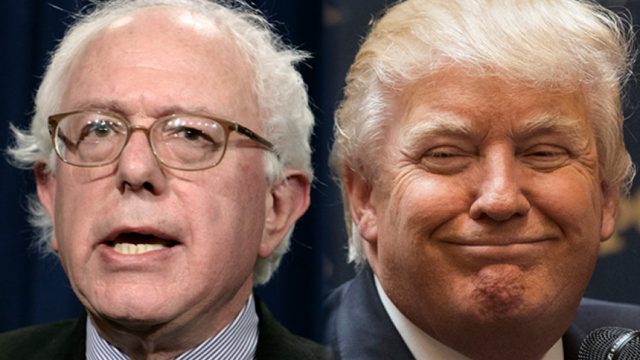John Andrist: The Difference Between Verbiage And Leadership

It was somewhat of a surprise for me to discover how much I enjoyed the presidential debate last week.
I’ve always believed there is a danger in relying on the words of candidates. They are meant to win us over, not necessarily to explain positions. The thought of being “sucked in” by the rhetoric, makes me feel defensive.
At the same time, the debates are great theatre, sort of like reality television programs. I was waiting for The Donald to say, “You’re fired!”
This is a remarkable campaign in terms of the interest it has attracted from people who believe, I think genuinely, that they could make a good president.
My life in small town North Dakota has so often been one of seeking somebody willing to be a mayor, a city council member, a school board member, or some warm body to fill another important civic or government post.
This campaign is a reminder of how sharply we as a people are philosophically divided, just as Washington is. How strange that the leading candidates of both parties are now the extremists — Donald Trump for the Republicans and Bernie Sanders for the Democrats.
[mks_pullquote align=”right” width=”300″ size=”24″ bg_color=”#ffffff” txt_color=”#000000″]Governing is dealing with reality, not glib dialogue.[/mks_pullquote]
In my humble opinion the nomination of either would be a disaster for their party’s presidential hopes. There are still a number of folks somewhere in “middle land” to make certain that we elect a person who has some centrist views.
At least that is so if both parties don’t endorse fringe leaders, or if a third candidate appears in the presidential race.
Some folks have no interest in things political. Some don’t even vote. And sadly some do vote who have not seriously thought about the candidates. Others vote against somebody, rather than for one. I did that once or twice.
But for the most part I’ve always had that strong interest in voting, not as a civic duty, but as one who wants to be part of the process.
I barely had reached my 21st birthday when I voted in a presidential election, and in all the intervening years I remember only one election when I didn’t care about the outcome enough to actually vote.
That one was a local special school election concerning a mill levy increase, and I simply forgot. It made me feel sick until I learned the outcome after the polls had closed.
Unlike most active voters, however, I do not really despair over those who have no interest in voting, and I have never liked the idea of shaming people to vote as an act of public duty.
If you don’t have a strong feeling it probably is best that you don’t cancel the vote of those who care.
None of us can know or be interested in everything. I don’t have much to say when I’m in a group discussing art, or styles, or most of today’s TV entertainment. Sports, governance, and history pull my chain.
Getting back to the debates and political dialogue, my history interest tells me that Adolph Hitler, perhaps the world’s best known villain, rose to power, because he was such an articulate speaker.
The German people liked to hear him assuring the people that they could count on him to solve all their problems and make Germany great and powerful once again — sparing the details.
Sound like anyone you know? A candidate who inherited a bundle, parlayed it into billions? The guy who characterizes everyone else as ugly or villainous?
Or the one who is going to give us free college education, free medical care, and free everything else? (Don’t ask where he can find the estimated $18 trillion price tag)?
Governing is dealing with reality, not glib dialogue.




